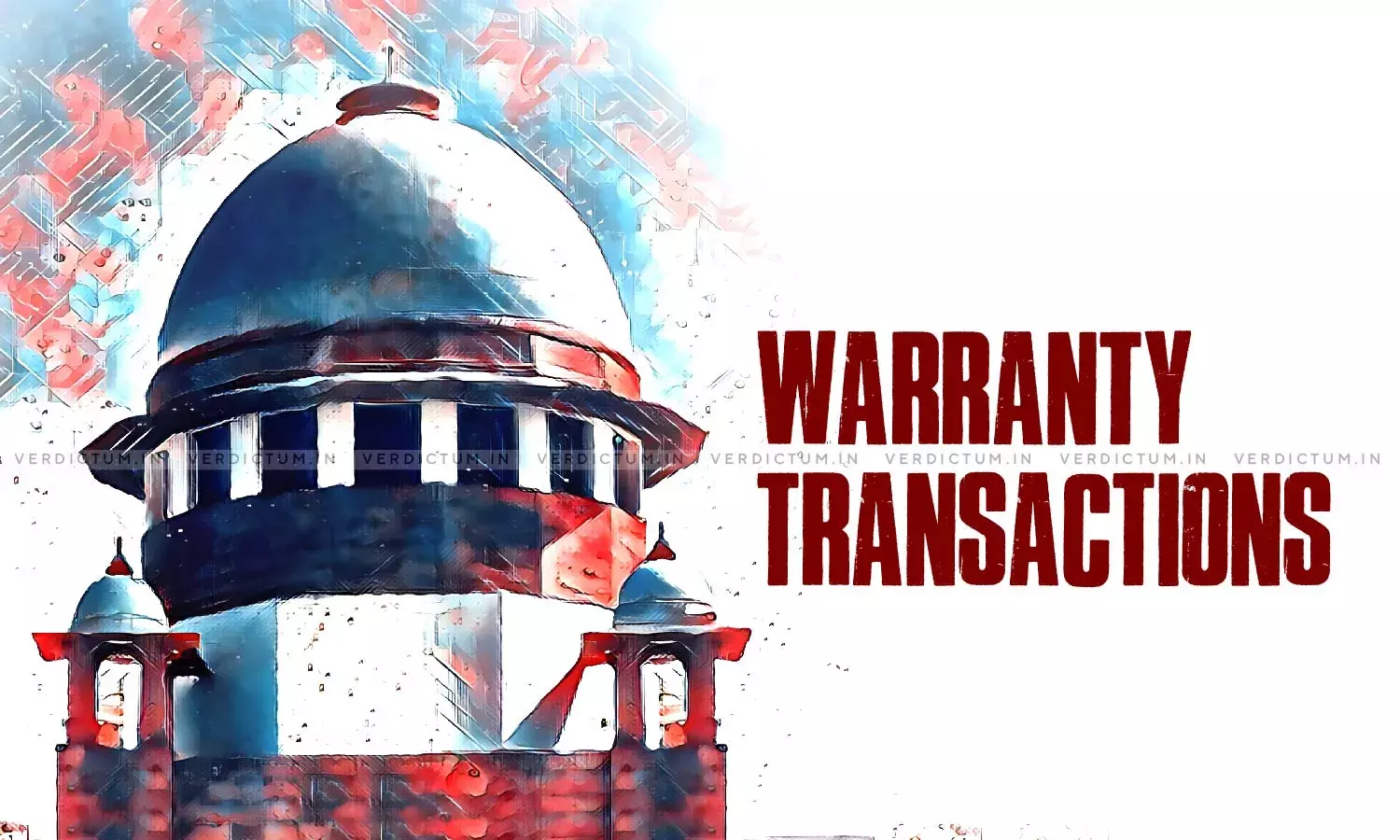Supreme Court’s Recent Stance On Warranty Transactions- A Startling Verdict Amidst The Settled Fundamentals?

The taxability of spare parts supplied under warranty contracts has yet again caused an uproar, post the recent decision of the Apex Court in the case of Tata Motors.
On one side, this decision has affirmed the earlier decision in the case of Mohd. Ekram[1]and has observed that a credit note issued by a manufacturer to a dealer of automobiles pursuant to the replacement of a defective part of an automobile by the dealer from its own stock during the warranty period, is exigible to sales tax. However, on the bright side, this decision has narrowed down the scope of Mohd. Ekramdecision (though quite evident), by holding it inapplicable to the cases involving part to part replacement, wherein the dealer simply receives a spare part from the manufacturer so as to replace a defective part therein under a warranty collateral to the sale of the automobile.
Regardless of the seemingly uncomplicated and simple verdict of the Apex Court, it may have a larger ripple effect across industries. Through this article, the authors have attempted to highlight the ramifications that the decision may have on the taxpayers.
Pre-GST Regime
One obvious concern which will surface from this decision for the taxpayers would be the fate of earlier sales tax assessments. One will have to dig deep into the specifics of each of the state VAT provisions to find out the precise impact of the decision on earlier sales tax assessments to know if the same can be re-opened. Also, one must be mindful of the implications wherein no demand for warranty cases was raised but the assessments are still pending on other issues. The impact of this decision on other ongoing VAT cases must also be paid attention to.
GST Regime
Yet the larger question which needs to be addressed is whether the decision unsettles anything in the GST regime as well. Let us see if this would have any bearing on the cases involving reimbursements by importers from foreign suppliers by way of credit notes for undertaking repairs under warranty.
Reimbursement vs. consideration
As a commercial practice, the parties import goods from suppliers wherein the warranty is provided by the foreign suppliers. The warranty to Indian customers is provided by Indian suppliers on their own accounts. In case of defect in spare parts, the goods are repaired by Indian suppliers and credit note is raised for the value of spare parts consumed in repairing of goods. The industry’s approach in such instances is to consider such payments as pure reimbursements/damages rather than a consideration for any supply and thus, rendering it inexigible to GST.
The above stand also finds support from the decisions rendered under more matured GST legislations such as the Australian GST law which has clarified that where non-resident manufacturer has a payment obligation to a local dealer who has given warranty to its customers on its own account and undertaken repairs, then such activity of the dealer will not qualify as repair services. The Australian Judiciary has adopted this stance even in the case of the automobile industry itself.
Now, in this decision, the Apex Court has observed that the credit notes can also be issued for rendering a service under a dealership agreement, wherein the manufacturer sends the spare part to the dealer to replace a defective part. Based on this observation, one obvious doubt emerge as to whether the cases where a dealer claims reimbursement from brand owner/ manufacturer will also be subject to GST or can one adopt the international approach of treating it merely as damages.
Broader Meaning to ‘Credit Notes’
It is worth noticing that the Apex Court has extensively analysed the meaning of the term, ‘credit note’.After referring to a plethora of decisions and dictionary meanings, it was observed that the credit note issued by a manufacturer in favour of a dealer is a valuable consideration received, which is in the nature of a benefit from the manufacturer. This finding of the Apex Court is indeed a pathbreaking observation which can cause a stir amongst the entire industry.
It has opened a Pandora’s box for all such cases wherein the dealers are being compensated by way of issuance of credit notes. To elucidate, the manufacturers issue commercial credit notes to dealers on account of various situations such as compensation for expired stocks, year-end discounts to cover the losses of dealers, turnover discounts etc. The manufacturers chose to issue commercial credit notes to the dealers in such cases to avoid any unwarranted questioning on taxability of such transactions. Although issuing of commercial credit notes instead of GST credit notes is considered as a safer approach from GST perspective, but one must look into the true essence of the transactions for which these credit notes are issued, to understand the real tax implications.
Lastly, for transactions involving barter, though this decision may definitely be of great relief for the assessees in the sales tax regime, it does not seem to benefit the taxpayers in the GST regime, wherein barter has been specifically included under the definition of supply and is thus, leviable to GST.
To bring it all together, this decision might have profound implications for the taxpayers in both pre-GST and GST regimes. Thus, given this recent advancement, the warranty transactions in VAT regime as well as the GST regime are ripe for reconsideration. One must take a fresh look at the facts of each transaction to comprehend the genuine impact of the decision to avoid any future litigation.
[1] (2004) 6 SCC 182
Shivam Mehta is an Executive Partner and Tanya Garg is a Senior Associate at Lakshmikumaran & Sridharan Attorneys.
[The opinions expressed in this article are those of the authors. Verdictum does not assume any responsibility or liability for the contents of the article.]

